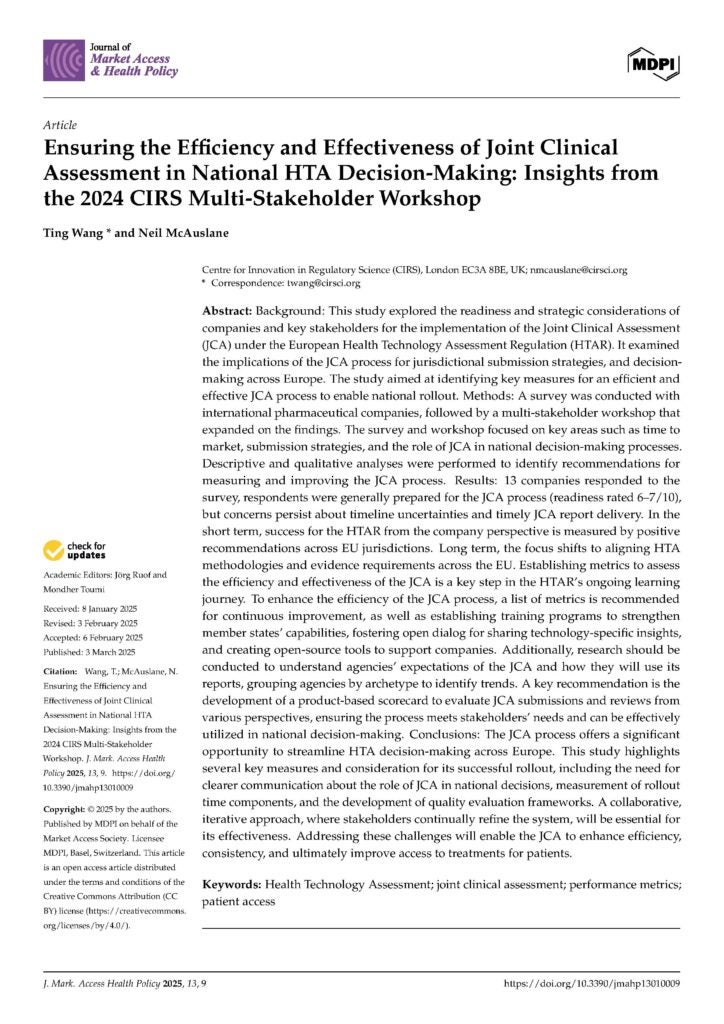Background: This study explored the readiness and strategic considerations of companies and key stakeholders for the implementation of the Joint Clinical Assessment (JCA) under the European Health Technology Assessment Regulation (HTAR). It examined the implications of the JCA process for jurisdictional submission strategies, and decision-making across Europe. The study aimed at identifying key measures for an efficient and effective JCA process to enable national rollout.
Methods: A survey was conducted with international pharmaceutical companies, followed by a multi-stakeholder workshop that expanded on the findings. The survey and workshop focused on key areas such as time to market, submission strategies, and the role of JCA in national decision-making processes. Descriptive and qualitative analyses were performed to identify recommendations for measuring and improving the JCA process.
Results: 13 companies responded to the survey, respondents were generally prepared for the JCA process (readiness rated 6–7/10), but concerns persist about timeline uncertainties and timely JCA report delivery. In the short term, success for the HTAR from the company perspective is measured by positive recommendations across EU jurisdictions. Long term, the focus shifts to aligning HTA methodologies and evidence requirements across the EU. Establishing metrics to assess the efficiency and effectiveness of the JCA is a key step in the HTAR’s ongoing learning journey. To enhance the efficiency of the JCA process, a list of metrics is recommended for continuous improvement, as well as establishing training programs to strengthen member states’ capabilities, fostering open dialog for sharing technology-specific insights, and creating open-source tools to support companies. Additionally, research should be conducted to understand agencies’ expectations of the JCA and how they will use its reports, grouping agencies by archetype to identify trends. A key recommendation is the development of a product-based scorecard to evaluate JCA submissions and reviews from various perspectives, ensuring the process meets stakeholders’ needs and can be effectively utilized in national decision-making.
Conclusions: The JCA process offers a significant opportunity to streamline HTA decision-making across Europe. This study highlights several key measures and consideration for its successful rollout, including the need for clearer communication about the role of JCA in national decisions, measurement of rollout time components, and the development of quality evaluation frameworks. A collaborative, iterative approach, where stakeholders continually refine the system, will be essential for its effectiveness. Addressing these challenges will enable the JCA to enhance efficiency, consistency, and ultimately improve access to treatments for patients.
Wang, T.; McAuslane, N. Ensuring the Efficienc and Effectiveness of Joint Clinical Assessment in National HTA Decision-Making: Insights from the 2024 CIRS Multi-Stakeholder Workshop. J. Mark. Access Health Policy 2025, 13, 9. https://doi.org/10.3390/jmahp13010009

